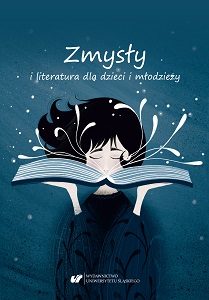Poezja dla najmłodszych jako projekt sensualny (na przykładzie zbioru Dębowa kołyska Anny Kamieńskiej)
Poetry for the youngest as a sensual project based on the example of the volume Dębowa kołyska (Oaken cradle) by Anna Kamieńska
Author(s): Katarzyna Wądolny-Tatar
Subject(s): Language and Literature Studies
Published by: Wydawnictwo Uniwersytetu Śląskiego
Keywords: poetry for youngest; lullaby; music; Anna Kamieńska
Summary/Abstract: The volume of poems Dębowa kołyska, published in 1967, combines rural and children’s folklore. This convention also includes illustrations by Adam Kilian, characterized by artistic primitivism. The collection read as a whole, as well as in a situation where the recipient is a child of pre-school age, most fully reveals its virtues of sensual and literary-graphical design. The poet’s works are reactive, appeal to the many senses of the youngest reader, engage his/her body, memory and imagination; stimulate multidirectional reading that is open to gesture and movement, rhythm and aesthetics of repetition, audio-description of the world; relate to the taste and smell of food. At the same time, they pursue the idea of children’s vitalism through topics related to the close environment of the child (family, home, fun, everyday activities) and heterogeneity of children’s statements (nursery rhymes, lullabies, counts, riddles, “ifbugs”). Kamieńska saw the cultural and educational need for intergenerational transmission in the functional, objective and subjective aspect. This is evidenced by the situational-utilitarian character of the poems from Dębowa kołyska, their formal-linguistic formation, the author’s knowledge of the stages of childhood development and her belief in the “phylogenetic” priority of direct contact before indirect and remote, joint reading before attempts of independent reading, orality before writing, from today’s perspective, one can also add – both these forms of transmission before using electronic devices. The poet expresses these issues with the motto that begins the collection: “Róża nie zakwitnie, jak się nie polewa. / Dziecko nie urośnie, jak mu się nie śpiewa” (‘The rose will not blossom if it isn’t watered. / The child will not grow up if they don’t sing for him/her”).
Book: Zmysły i literatura dla dzieci i młodzieży
- Page Range: 109-124
- Page Count: 16
- Publication Year: 2020
- Language: Polish
- Content File-PDF

